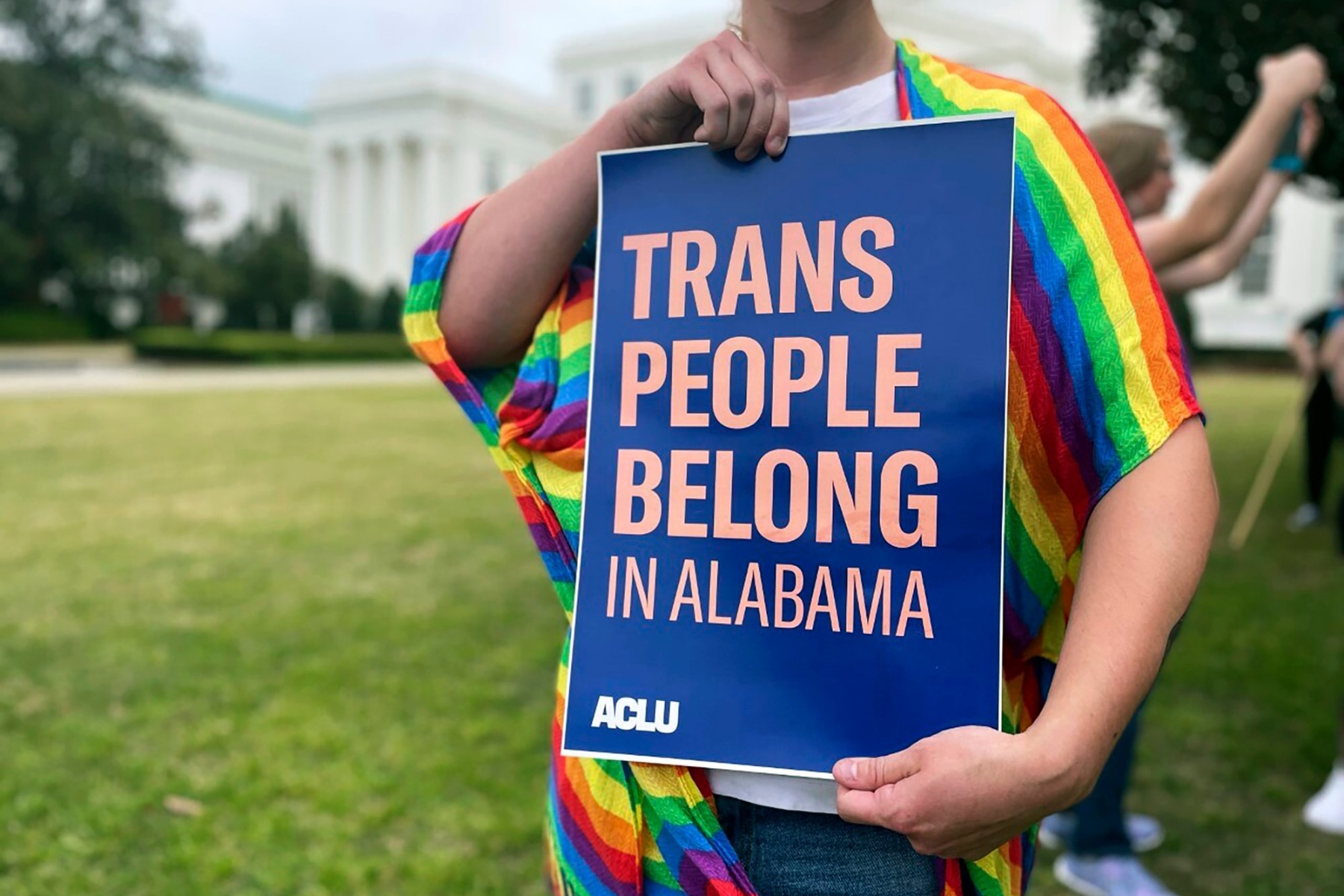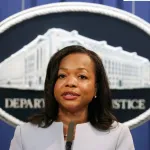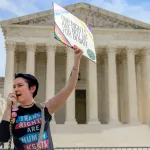A federal judge in Alabama has unsealed a report that accuses dozens of the nation’s top LGBTQ+ rights attorneys of improperly trying to select a judge friendly to a lawsuit they brought in the state.
The practice of judge shopping, or trying to get a case in front of a judge who will side with attorneys, is not illegal, though it’s a practice the federal judiciary recently has tried to discourage. It has recently gotten attention as a tactic used in cases brought by anti-abortion groups.
On Tuesday, U.S. District Judge Liles Burke released a 50-page report by a three-judge panel in the Middle District Court of Alabama that accuses 39 attorneys of judge shopping in a 2022 case they brought challenging Alabama’s ban on gender-affirming health care for trans youth. Of those, 11 face possible sanctions that could at least complicate, if not end, their legal careers.
Among those named in the report are some of the nation’s most prominent LGBTQ+ civil rights attorneys, including the National Center for Lesbian Rights’ Shannon Minter; GLAD’s Jennifer Levi; James Esseks of the American Civil Liberties Union (ACLU); and Carl Charles, who recently departed Lambda Legal for a position in the Department of Justice.
Also named in the original inquiry but no longer facing threat of punishment is the ACLU’s Chase Strangio, whose vocal support for trans youth has elevated his status over the past four years.
The 19th reached out to seven attorneys in the group. Some declined to comment, citing fears of further punitive action from the court. Others did not respond at all.
If sanctioned, attorneys could be stripped of their abilities to practice law in Alabama and beyond. They are due back to argue their case on May 22.
Any legal sanctions must be reported to the bars issuing their licenses, and they will likely be forced to disclose the inquiry before being admitted to practice in states where they are not licensed.
At issue is whether the organizations skirted legal ethics in 2022 lawsuits over Alabama’s ban on gender-affirming health care for trans kids. LGBTQ+ organizations pursued two separate cases against the state over the ban — one helmed by the National Center for Lesbian Rights, the Human Rights Campaign, the Southern Poverty Law Center, and GLAD Legal Advocates and Defenders, and another led by the ACLU, Lambda Legal and the Transgender Law Center, among other groups.
The two similar cases were ultimately consolidated and sent to Burke, a judge with a conservative record who was appointed by former President Donald Trump. That’s when the cracks began to form, according to multiple sources within the organizations who spoke on condition of anonymity because they feared disbarment. They said infighting among LGBTQ+ organizations prevented them from moving the consolidated case forward.
“There is no universe where all of us could have worked together,” said one attorney. “We can barely get through a phone call together.”
The groups agreed to dismiss their cases and allow the National Center for Lesbian Rights and its plaintiffs to refile. Their attorneys said in court proceedings that they had every right to dismiss their own case once and that nothing about the move suggests an ethical violation.
In court records, Burke states that the 39 attorneys who brought the two cases gave the appearance of judge shopping, or trying to game the courts by picking a judge who would side with them.
“Plaintiffs’ course of conduct could give the appearance of judge shopping, a particularly pernicious form of forum shopping, a practice that has the propensity to create the appearance of impropriety in the judicial system,” Burke said.
The case as refiled ultimately was reassigned to Burke.
But impacted attorneys claim they are being targeted with regressive and harsh tactics that recall those used against Black civil rights litigators battling racist laws in the 1950s and 60s. Black lawyers in the United States faced rampant discrimination during the Civil Rights Movement.
Last year, the Alabama State Bar Association inducted the late attorney Arthur Madison into its Hall of Fame for his work registering Black voters, including Rosa Parks. But that work cost him his career. Despite the honor, Madison remains disbarred in the state. His family continues to advocate for the state to restore his license posthumously.
LGBTQ+ lawyers who spoke to The 19th on condition of anonymity shared fears that, in the worst-case scenario, they could face the same fate. The report by the three-judge panel did not list disbarment as a potential punitive action, stating that possible sanctions include suspensions from practice in the northern and middle districts of Alabama.
Under Alabama’s judicial disciplinary rules, a suspension is the removal of a lawyer from the practice of law for at least 45 days and no more than five years. In contrast, a disbarment terminates an individual’s status as a lawyer in Alabama for five years, at which point they can apply for reinstatement.
Levi, Minter, Esseks and others have brought some of the most important civil rights advancements for LGBTQ+ Americans in a generation. Now, their legal careers are in jeopardy.
Burke could not be reached immediately by phone to comment for this article.
The report was written by Judges Keith Watkins, David Proctor and Jeffrey Beaverstock. They found that attorneys tried to steer their case toward Judge Myron Thompson, who previously ruled favorably on a case involving gender markers for trans people on driver’s licenses. According to the judge, Charles called Thompson’s chambers and alerted him that the ACLU was going to file an emergency’s motion and that the suit was likely related to his previous case, something Charles said in court documents was not unusual. The panel, however, saw this call as an attempt to shove the case toward Thompson. Court records show that Charles initially said he did not recall making that phone call but then said he had in the same testimony.
“My pause is only because I am endeavoring to be as candid as possible,” Charles said, according to the report.
In a statement, the ACLU and the ACLU of Alabama said that the groups disagree with the factual and legal conclusions issued by the three-judge panel in Alabama and that their attorneys did nothing wrong.
“We are deeply concerned about the chilling effect this order may have on future attempts to litigate civil rights claims in Alabama and beyond.”
The potential for some of the nation’s top LGBTQ+ attorneys to be sanctioned comes amid a legal battle for transgender rights that may eventually reach the Supreme Court — although so far, the high court has declined to get involved with multiple trans rights cases spanning issues from bathroom access to school sports.
As a historic amount of anti-LGBTQ+ legislation has been introduced in states across the country within the past few years, the courts — and LGBTQ+ attorneys — have emerged as an essential blockade for the implementation of much of that legislation.
Alabama is currently able to enforce its statewide ban against puberty blockers and hormone replacement therapy for transgender youth. In response to the second suit brought by the National Center for Lesbian Rights, Burke granted a preliminary injunction order for the plaintiffs in 2022 — blocking Alabama from enforcing the ban as the lawsuit proceeded. The state appealed, and ultimately the U.S. Court of Appeals for the 11th Circuit sided with the state in January and allowed the ban to take effect while the challenge against the law continues.
Judge shopping has come under scrutiny in recent years for fueling conservative victories in court on issues such as abortion, immigration and gun rights — particularly in Texas, where lawsuits have sought nationwide injunctions to block Biden administration policies.
The Judicial Conference, the national policy-making body for the federal courts, released updated guidance this month on how courts should deter judge shopping — with a focus on political lawsuits.
The policy instructs district courts to randomly assign judges in civil cases that seek to bar, or mandate, the enforcement of state or federal laws. Following backlash from conservative judges and senior Republicans in Congress, the Judicial Conference made clear that it cannot require that district courts follow its updated policy, the Washington Post reports.
Editor’s note: This story has been updated to clarify that the report by the three-judge panel did not list disbarment as a potential punitive action.
Correction: An earlier version of this article misstated the number of attorneys who still face possible sanctions.






